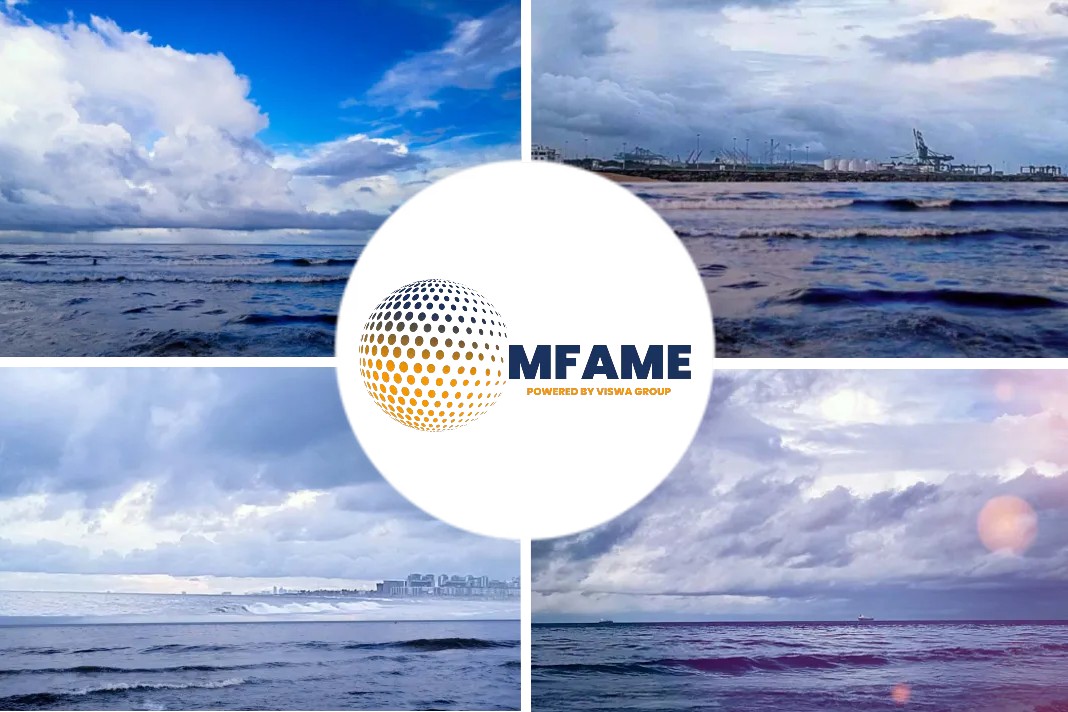
An insightful conversation with Ricardo Rocha, Regional Head of Logistics and Services Product in Latin America about the work life in Maersk, says an article published on their website.
What does it mean to you to be resilient at work?
Being part of an Emerging Region and growing up in one of the world’s largest emerging countries helped me deeply understand resilience’s daily meaning, and for most Latin American people, resilience gets embedded in our DNA.
We have had, and still face, many different challenges which cross our private and business lives. All those challenges triggered our people’s need to learn to adapt, listen to understand and get some critical degree of flexibility to work closely with more mature regions and countries.
All those elements were essential when I joined Maersk 2 years ago and continue to be more than ever in our day-to-day activities across Latin America. We are setting forth the foundation to accelerate further our strong growth momentum to become a leading Integrator Logistics Company.
What is essential for you when focusing on driving the company´s agenda and delivering results with your team?
As learned over time, communication is one of the most effective soft skills when leading a group of people, and the same applies to our private life. In a more digitised full of volatility world, the art of communicating is paramount to driving our agendas and ensuring our team understands what and how things must get done.
Therefore, communication should come along with transparency, critical to getting the team onboard to our common goals, challenges and failures. More than ever, we have to empower and rely on our teams, and the right way to do it is to communicate more, bringing a very high level of transparency to everything we do.
How do you maintain discipline in your work life?
A clear definition of priorities is critical when leading a region of such complexity from the Logistics & Services perspective. That’s something I brought from my private life, which I learned the benefit of over time.
Therefore, more is needed. It is also crucial to have a team of knowledgeable, passionate and motivated professionals helping you to transform customer business requirements into value propositions. You can only do that if you trust in your teams and get to learn together with them how to serve our customers best. As business leaders, we must orchestrate all activities while allowing our teams to shine, grow and succeed.
How do you work to challenge the status quo and preparing for the future in a slightly uncertain and complex industry?
Regarding long-term thinking, our organization already foster that through one of our core values,” Constant Care. Take care of today, actively prepare for tomorrow… ” and it is our responsibility as business leaders to think big and reshape the logistics industry in the years to come by listening to our customers and empowering our people. Long-term thinking certainly helps to generate stickiness to the strategy and motivate further our young talents to challenge the status quo and to get a higher level of trust in the power of our name and how serious we are when talking about our transformation.
Everyone working for Maersk feels we are working for a bigger purpose. That’s my gut feeling when talking with different colleagues all over the world. Our purpose is “To Improve Life for All by Integrating the World”, and there are plenty of tangible examples across the different layers of our organization that outline how we firmly believe and see it in our everyday business lives. For example, the past two years were a proven point in our strategy regarding supply chain resilience, flexibility and how we helped different customers and industries supply their end customers with its products.
During the last decades, logistics have been changing, and the speed of change and frequency is going faster than ever before. Hence, all those global macro events, such as globalization which gained power in early 2000, the 2008 global financial crisis, which got started in the United States, COVID-19′, and the recent war between Russia and Ukraine, are reshaping the way we do business in logistics.
For instance, E-commerce was a part of our daily life’s way before COVID-19′ but got stronger during this time due to the need of consumers to buy goods without going shopping physically. Those are tangible examples of how logistics professionals got challenged to work more digitally or even to think about how to best position inventories closer to the final consumer with a wide range of products to supply this changing consumer demand.
As a result, different logistics business models got created throughout the last years to adapt to those global macro events, influencing customers’ business decisions, consumers, and who operates. Every 5-10 years, we have a new global event that triggers the need to understand and adapt to survive. Companies are constantly learning to navigate new waters due to it, and it is only possible when you have a team of people who understand the need to embrace the change and carry on.
Did you subscribe to our daily Newsletter?
It’s Free! Click here to Subscribe
Source: Maersk
















